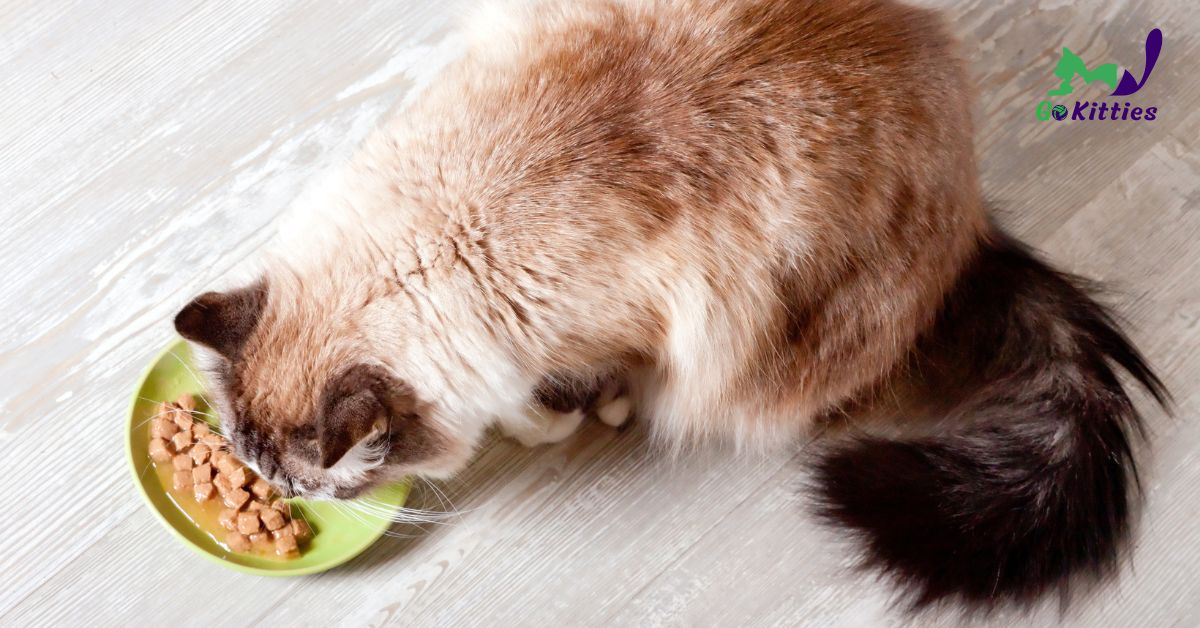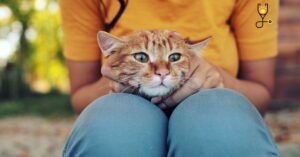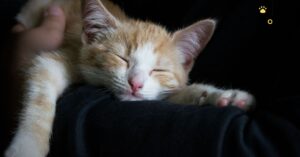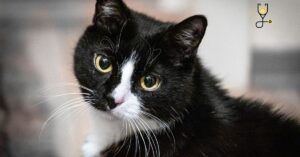Do you ever feel like your cat is always hungry? Well, you’re not alone. In fact, a recent study found that nearly 90% of cats have been shown to eat more than they need to. This can be a real problem, as overeating can lead to health complications down the road. But don’t worry – in this article, we’ll explore 10 reasons why your cat might be so hungry all the time and offer some solutions. So keep reading to learn more!
What Science Says About Why Cats Are Always Hungry
Before we dive in, let’s take a look at what science has to say about why cats are always hungry.
–A 2006 study found that nearly 90% of cats eat more than they need to.
–A 2010 study found that 66% of cats are overweight or obese.
-A 2012 study found that 42% of cats are fed too much.
–A 2014 study found that most cats eat more than they need to. As you can see, there’s a lot of research out there that points to the fact that cats are often overeaters.
1. Your Cat May Be Stressed
One of the most common reasons for cats to overeat is stress. Just like humans, when cats have stressed by too much thyroid hormone they may seek out food as a way to cope. If you think your cat’s hunger might be due to stress, there are a few things you can do to help. First, try to identify any potential sources of stress in your cat’s life and see if there are any ways to reduce them, this will reduce the cat’s appetite. For example, if your cat is always hungry because she’s anxious about being left alone, try increasing her playtime or providing her with a scratching post so she has something to do while you’re gone. You might also want to consider giving her a calming supplement like Rescue Remedy.

2. Your Cat May Have a Medical Problem
If your cat is always hunygr or taking more food than usual, and has other symptoms like weight loss, vomiting, or diarrhea, she may have a medical problem. One possibility is that she has diabetes, which can cause increased hunger as the body tries to get rid of the excess sugar in the blood. If you think your cat may have diabetes, take her to the vet for a check-up. Other medical conditions that can cause increased hunger include gastrointestinal issues like inflammatory bowel disease or parasites, so it’s always best to rule out any possible health problems before assuming stress is the only issue.
3. You Might Be Free-Feeding Your Cat
If you leave food out for your cat all day, she may be overeating because she doesn’t know when her next meal will be. This is called free feeding, and it can lead to weight gain and other health problems. If you’re free-feeding your cat, try switching to a scheduled feeding schedule where you only provide food at specific times of the day. This will help your cat learn to control her hunger and eat only when she’s actually hungry.
4. Your Cat May Be Eating Too Much Grass
While it may seem counterintuitive, one of the reasons your feline friend may be always hungry is because she’s eating too much grass. Grass contains a lot of fiber, which can actually make cats feel full even though they haven’t eaten much in terms of calories. So if your cat is always grazing on grass, she may not be getting the nutrients she needs and could be compensating by overeating. If you think your cat is eating too much grass, try giving her a small amount of wet food or canned tuna as a treat. This will help her get the nutrients she needs without filling her up on fiber.

5. Your Cat May Be boredom
A common reason for cats to overeat is boredom. If your cat doesn’t have anything else to do, she may turn to food as a way to pass the time. This is especially common in indoor cats who don’t have much to Stimulate them throughout the day. To combat boredom, try providing your cat with more toys and playtime. You might also want to consider getting a second cat as a companion.
6. Your Cat May Have an Anxiety Disorder
If your cat is always hungry and also exhibits other signs of anxiety, she may have an anxiety disorder. Separation anxiety is one of the most common anxiety disorders in obese cats, and it can cause them to overeat out of stress. If you think your cat may have separation anxiety, talk to your vet about possible solutions. These can include behavior modification exercises, anti-anxiety medication, and pheromone therapy.
7. You May Be Feeding Your Cat the Wrong Food

If you’re feeding your cat low-quality food that is high in fillers and low in nutrients, she may be always hungry, increased appetite, and can develop many medical conditions because her body is trying to get the nutrients it needs. Cats are obligate carnivores, which means they need a diet that is rich in animal protein. So if you’re feeding your cat a plant-based diet or a low-quality food that is mostly filler, she may be constantly hungry because her body isn’t getting what it needs. Talk to your vet about switching to high-quality cat food that is rich in animal protein.
8. Your Cat May Be Eating Too Much
If your cat is always hungry, she may be eating too much. This can happen if you’re overfeeding her or if her food bowl is too big. To avoid overfeeding, measure out the recommended amount of food for your cat’s weight and age. Don’t free-feed your cat, and don’t leave her food bowl out all day. If your cat’s stool is too big, switch to a smaller one so she doesn’t have as much room to overeat.
9. You May Be Feeding Your Cat Too Often
If you’re feeding your cat multiple times a day, it will increase your cat’s appetite and hunger because she’s used to getting food more often than she needs. Many cats should ideally be fed 2-3 times a day, so if you’re feeding yours more often than that, she may be overeating. To avoid this, stick to a regular feeding schedule and don’t give your cat any extra snacks or treats during the day.
10. You May Be Feeding Your Cat Too Much Wet Food
While wet food is generally more nutritious than dry food, it can also lead to weight gain if you’re feeding your cat too much of it. This is because wet food is typically high in calories and fat. So if you’re feeding your cat mostly wet food, she may be always hungry and can increased urination, because she’s getting more calories than she needs. To avoid this, feed your cat a mix of wet and dry food or reduce the amount of wet food you’re giving her. If your cat is always hungry, there could be a number of underlying causes. Some common reasons include boredom, anxiety, and poor nutrition. Talk to your vet about ways to solve the problem so your cat can live a happy and healthy life.

Conclusion
There are a number of possible reasons why your cat is always hungry. It could be something as simple as boredom or anxiety, or it could be a sign of poor nutrition. Talk to your vet about ways to solve the problem so your cat can live a happy and healthy life.
Frequently Asked Questions
Q1:Why is my cat always hungry?
There are a number of possible reasons why your cat is always hungry. Other clinical signs include boredom or anxiety, or it could be a sign of poor nutrition. Talk to your vet about ways to solve the problem so your cat can live a happy and healthy life.
Q2:How often should I feed my cat?
Cats should ideally be fed 2-3 times a day. If you’re feeding your cat more than enough food than that, she may be overeating. To avoid this, stick to a regular feeding schedule and don’t give your cat any extra snacks or treats during the day.
Q3:Is wet food better for cats than dry food?
While wet food is generally more nutritious than dry food, it can also lead to weight gain if you’re feeding your cat too much of it. This is because wet food is typically high in calories and fat. So if you’re feeding your cat mostly wet food, she may be always hungry because she’s getting more calories and will demand a litter box than she needs. To avoid this, feed your cat a mix of wet and dry food or reduce the amount of wet food you’re giving her.
Q4:My cat is always hungry and she’s getting fat. What should I do?
If your cat is always feeling hungry and gaining weight, it’s important to talk to your vet. They can help you figure out the underlying cause and develop a plan to get your cat back to a healthy weight. Often, this will involve reducing the amount of food you’re giving her and/or changing to a lower-calorie diet.
Q5:Why is my cat always hungry and meowing?
If your cat is hungry and meowing, it could be a sign of hunger, boredom, or anxiety. Talk to your vet about ways to solve the problem so your cat can live a happy and healthy life. Often, this will involve increasing the amount of food you’re giving her and/or providing her with more toys and stimulation.







